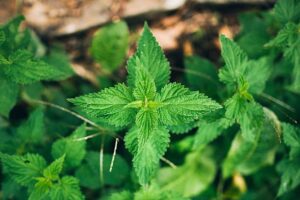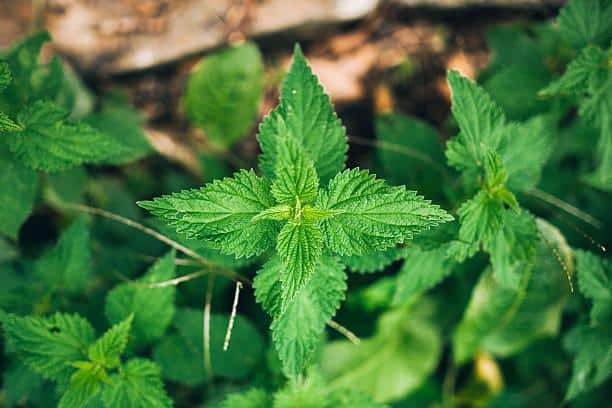The stinging nettle earned its name for a reason—this family of plants is known for distinctive spiked “hairs” on stems and leaves, an evolved defense mechanism. They can indeed sting if touched, and will sometimes leave a nasty rash, but people have put up with this annoyance for thousands of years and used the plant’s fibers (minus the stinging hairs, of course) to make simple textiles and clothing.
Stinging nettles are also edible, and for a very long time, dating back to at least the Bronze Age by some estimates, humans have attributed herbal medicinal properties to these plants. The ancients must have been onto something. In a 2016 review of the scientific evidence for the medicinal properties of stinging nettles, Indian scientists Vasudha Pant and R.C. Sundriyal offered a convincing argument that there is indeed something to this plant in the Journal of Ethnobiology and Traditional Medicine. “Stinging nettle is characterized by considerable dietary and health-maintaining qualities, and has strong potential for food and therapeutic purposes,” they wrote. More recently, agricultural scientists have discovered surprising health benefits of stinging nettles for birds.
Separate studies from Algeria, Nepal, and Kenya have confirmed that widespread use of stinging nettle powder or stinging nettle extract could prove to be an effective means of boosting the health and productivity of farm poultry. The natural additive appears to improve the quality of eggs, according to two studies. Perhaps more importantly, researchers say they have uncovered convincing evidence that stinging nettle powder or extract fed as a supplement to chickens actually leads to an enhanced immune response in the birds, which are often raised in high-density conditions where diseases can spread quickly.
“Stinging nettle…has strong potential for food and therapeutic purposes.”
For example, veterinary scientists in Kenya say they’ve discovered that stinging nettle extract can be used to boost the immunity of farm chickens prior to vaccinations. Neem oil seems to have a similar effect, but stinging nettles work even better, the researchers say.

University of Nairobi and Pwani University scientists were investigating ways to protect Kenya’s chickens from infectious bursal disease (IBD), a dangerous pathogen that can lead to flock mortalities as high as 40%. Kenya currently imports agricultural vaccines to help protect this important national food source against the IBD virus, but the vaccines often don’t work as advertised. “Immune responses are critical for protection of chickens from infectious bursal disease,” noted lead author Moses Bwana and colleagues. “Kenyan chicken farmers have used these imported live attenuated IBD vaccines with limited success in containing the disease since new outbreaks are still reported even among vaccinated flocks due to vaccine failure.” What’s needed, they believe, is a cheap, effective, and indigenous method for ensuring that imported vaccines actually give chickens a fighting chance against IBD. Stinging nettle extract appears to be one solution.
The Kenyan scientists gave different groups of chickens varying quantities
“Immune responses are critical for protection of chickens from infectious bursal disease.”
of stinging nettle extract in their drinking water, then compared those chickens’ post-vaccination immune response against each other and against a control group that wasn’t fed any stinging nettle extract. The results were surprising and conclusive. “Both neem and stinging nettle had antibody response-enhancing effects,” they reported in the journal Poultry Science, noting that “stinging nettle induced earlier onset of high antibody responses.” (Stinging nettle and neem enhance antibody response to local killed and imported live infectious bursal disease vaccines in indigenous chicken in Kenya – ScienceDirect)
Bwana et al. say they are so impressed with their results that they are now encouraging Kenya’s farmers to fortify their chickens with stinging nettle extract ahead of any IBD vaccination campaigns. Doing so will increase the antibody response in the birds, they insist, thereby increasing the odds of flocks becoming guarded against the deadly virus. “Adoption of stinging nettle supplementation and a prime-boost program involving use of a local virus isolates-derived vaccine is recommended,” they conclude.
So indeed, Bronze Age herbalists probably had very good reasons to treat their ancient patients with stinging nettle teas and other home remedies. Science is increasingly confirming that there is definitely something about nettles.
Grow Further first connected with Dr. Bwana when he was a graduate student supported by a small research grant from RUFORUM. RUFORUM is one of the partners we’re considering as we build our own research grant program.
— Grow Further
Photo credit: Stinging nettles, iStock Photos, Getty Images




